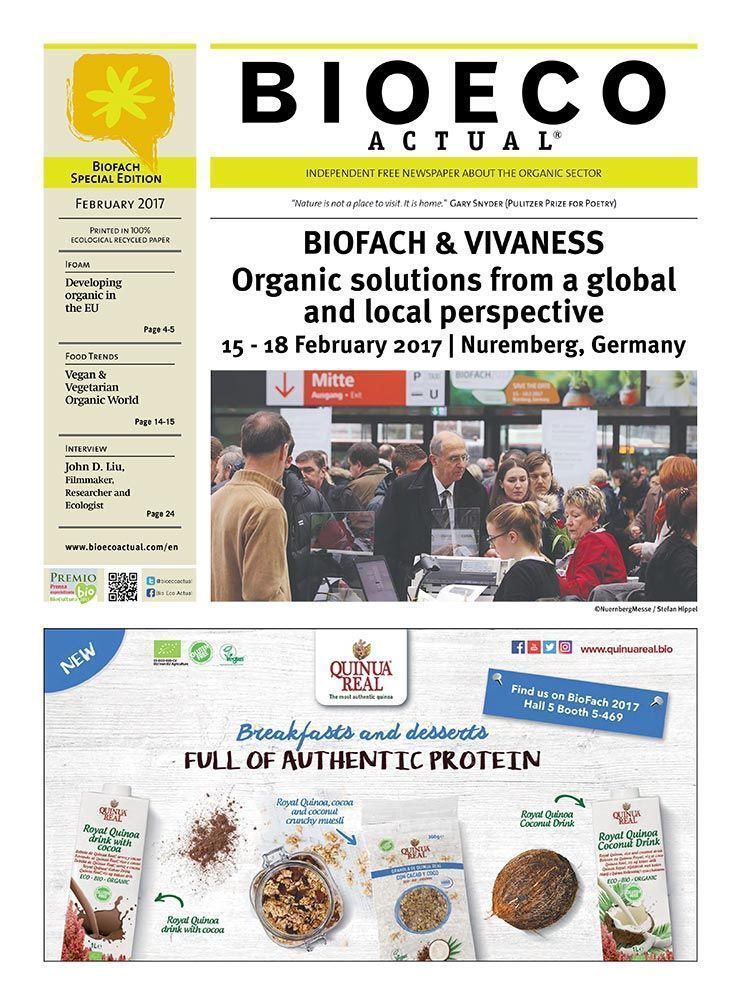At IFOAM – Organics International, we believe agriculture should be a force for good, providing solutions to global issues like hunger, water pollution, biodiversity loss, and climate change. Organic agriculture looks at agro-ecosystems holistically and recognizes the interconnection between human health, nature, and production. The multi-faceted environmental, social, and economic benefits of sustainable agriculture can meet many of the Sustainable Development Goals (SDGs).

SDG 1: Eliminating Poverty
Worldwide there are about 500 million smallholder farming households living on less than $2 a day. Linking organic farmers to markets can help to increase household income and provide communities with greater access to nutritious food.
SDG 2: Eradicating Hunger
Ecologically sound organic production systems can achieve food security by increasing yields, improving disease and pest resistance, and reducing debt incurred from expensive chemical inputs.
SDG 3: Achieving Good Health and Well-being
Organic agriculture can help to improve soil fertility, protect biodiversity, mitigate climate change, safeguard water resources, and ensure fair prices and sustainable supply chains for farmers.
SDG 4: Ensuring Quality Education
Poor nutrition affects our ability to learn and education plays a huge role in raising awareness of good food. Building capacity around diet diversification by establishing organic school nutrition gardens is one effective way.
SDG 5: Reducing Gender Inequalities
Women farmers play a vital role in ensuring food security but lack of training or resources results in yields lower than those of male farmers. By increasing their access to resources and guaranteeing secure land tenure, women farmers can increase yields by 20 – 30%.
SDG 6: Securing Clean Water
Glyphosate-based formulations are the most widely used herbicides. Instead of spraying glyphosate, organic farmers use crop rotation and cover crops that can naturally suppress weeds and improve soil fertility.
SDG 8: Ensuring Decent Work and Economic Growth
Some of the world’s unhealthiest jobs are found in food systems. The World Health Organization estimates that there are “3 million cases of pesticide poisoning each year”. Sustainable food production can ensure safer works and better livelihoods.
SDG 10: Pursuing Reduced Inequalities
Farmers are often the most affected by poverty, hunger, and climate change. A food system based on the principles of organic agriculture, health, ecology, fairness and care can significantly improve their livelihoods.
SDG 14: Protecting Life Below Water
Waste from industrial agriculture causes oxygen-starved areas devoid of life to form in our oceans. Eliminating the use of chemical fertilizers can end these dead zones and ensure our waters are safe for marine life.
SDG 15: Safeguarding Life on Land
Biodiversity loss is at an all-time high. Organic farmlands are a haven for wildlife, providing food and shelter for up to 30% more species than conventional farms.
SDG 12: Promoting Responsible Consumption and Production
To encourage a shift in our systems, national procurement policies can stipulate that food served in schools and public institutions is sustainably produced. As consumers, we can increase responsible consumption by reducing food waste and choosing to eat local, seasonal, and organic.
Organic Delivers a Sustainable Future
IFOAM – Organics International also encourages you to join the Honest Food (#eathonest) campaign. Because in a world where food is sprayed with harmful chemicals, packed in plastic, and shipped around the globe, we need more Honest Food. Meet us at our congress session or visit www.honestfood.bio!
Author: Nicole Kruz, Communications Coordinator. IFOAM – Organics International | www.ifoam.bio
Subscribe at our Newsletter and be up to date with the latest news in the European Organic Sector
Bio Eco Actual, International Organic Newspaper
Read Bio Eco Actual










































